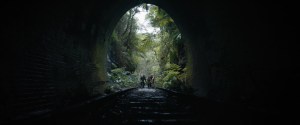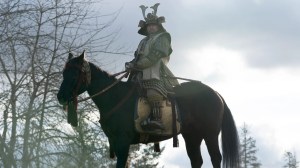While playing through Ghost of Tsushima, you’ll encounter a variety of missions that range from simpler fetch quests to ones that require a bit of investigative work. One of the best examples of these are the Mythic Tales that send players hunting after the legends of Tsushima with major rewards waiting at the ends of those missions. Those quests and others that send players on hunts after demons or ghosts occasionally teeter on the edge of the supernatural or at least seem like they will, but there’s always some closure to these quests that reign the game back into reality.
Videos by ComicBook.com
The game could’ve easily left some of these quests’ endings more ambiguous or open-ended to leave players questioning things, but it always seemed to make a conscious effort to resolve any lingering questions. In pretty much every scenario where people thought demons or something similarly nefarious was at play, humans where behind the problems.
Speaking with Sucker Punch Production’s Ghost of Tsushima game director Nate Fox, we asked if there was ever a time during development where the creators considered adding any sort of supernatural element. Fox said the intent was to keep it “grounded in reality” throughout.
“We absolutely did not want to make the game supernatural,” Fox said. “We wanted to keep it grounded in reality. So while the game is grounded in reality, the people who live on Tsushima Island have their beliefs. Some of are based in what they think of as real at the time, which are supernatural entities. So the stories that you encounter inside of those Mythic Tales, people telling those tales believe them to be true.”
There are spiritual elements at play in Ghost of Tsushima, however. The Guiding Wind mechanic sees the winds of Tsushima direct Jin where he needs to go with some story moments encountered during the main narrative adding some context to that feature. Where the Mythic Tales are concerned though, Fox said they’re more about unraveling the lore of Tsushima and the stories of those who came before Jin.
“We wanted to create a feeling of authenticity,” Fox continued. “And there are certainly some spiritual elements that push reality a little bit, like the wind will guide you where you want to go or a yellow bird might guide you to a thing. The Mythic Quest are about the lore, the story that the people on this island tell each other. This place has been around for a while. And so legends have built up around the warriors or the events that have happened, or the invasion occurred.
“So we meet these singers, they’ll tell you about these incredible events that transpired,” he said. “And then in doing the quest, you get to kind of retrace the footsteps of this history. Getting to know the island better to learn why the sands on one beach are black, burned that way from monsters who have come down from the sky. And this is meant to deepen your relationship with what Tsushima is, and the people who’ve lived here before you, so that there’s this feeling of history.”
Ghost of Tsushima is now available for the PlayStation 4, and you can check out our review of the game here.








